The main challenges when it comes to aubergine cultivation are the three main moments of the production season that usually occur between September and December, between January and March and between April and June, i.e. in the periods when climatic change is most pronounced due to the transition between hot and cold weather and to the return of the hot weather. These three cultivation periods mark the life of aubergine plants from the beginning to the end of the production cycle, and climatic changes represent the greatest challenge for agronomic management. Exploring the subject in depth is Alessandro Speranza, commercial director of the production and marketing company that bears his surname.
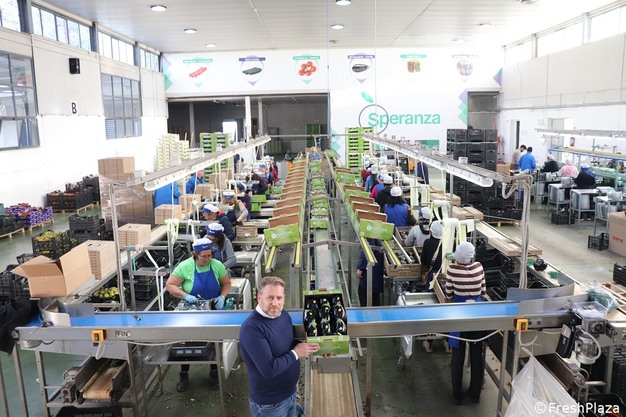 Alessandro Speranza inside the processing warehouse.
Alessandro Speranza inside the processing warehouse.
Click here to see the photo report
No hormones and limits below the threshold set by retailers
"Production management in greenhouses becomes very important this time of year. The right processes allows us to keep production constant without fluctuating yields. In our company, this is achieved without the use of hormones, because we care not only about respecting environmental sustainability, but also about respecting the parameters set by our business partners. Sustainability means first and foremost economic sustainability: if we get complaints for not keeping within residue limits, then we also lose money and miss our business objective."
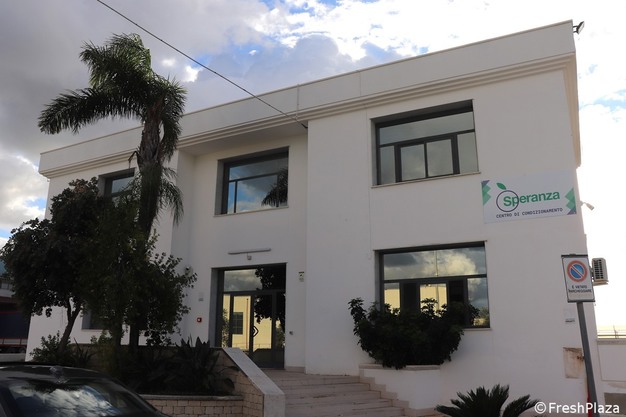 External view of the offices of Speranza Srl.
External view of the offices of Speranza Srl.
"It is clear that it is not possible to achieve zero residues with the integrated pest management method, but it is possible to keep them below the threshold set by retailers (which is already much lower than the limit set by current Italian law which, in turn, is among the most stringent in the world), and it is this principle that makes us a point of reference for Italian and foreign supermarket chains."
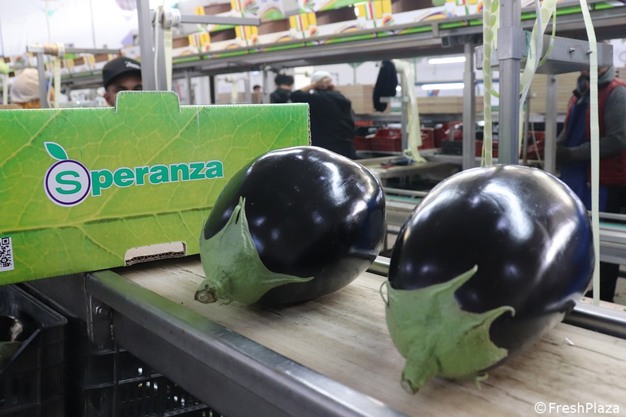
"Precisely because we do not use hormones (which push fruits during the growth phase), our aubergines present themselves without streaks on the skin, which are indeed caused by forcefully-induced growth. This is where we circle back to the subject of environmental sustainability, i.e. greater food safety, which again goes hand in hand with economic sustainability: a healthy fruit that also looks good sells better than a marked one."
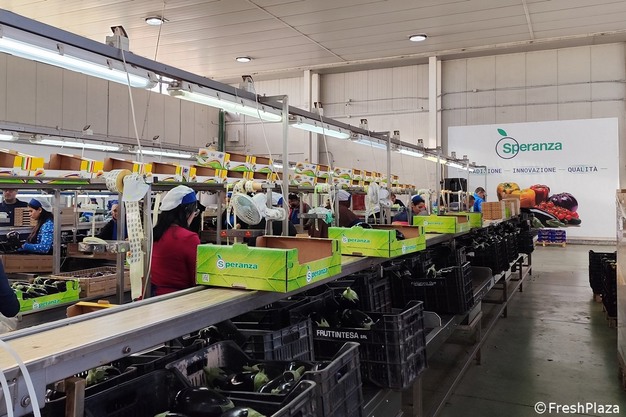 One of the aubergine processing lines
One of the aubergine processing lines
Strengthening the foreign trade department
"Over the years, we have equipped our iron greenhouses with soil fertigation solutions, which we remove at the beginning of each campaign to till the soil in order to aerate and regenerate it. We use natural fertilisers, plus beneficial insects to mitigate the use of pesticides. In this way, we preserve traditional practices in a modern, technological context. We have managed to achieve the goals we set ourselves over the years on minimum limits, the absence of hormones and Nickel-tested production (it is indeed possible in-soil), and the next challenge will be to strengthen our foreign sales department. The quality of our aubergines has in fact been increasingly appreciated abroad in recent years, and this is due to the progressive structuring of the company, from the modernisation of greenhouses to research in the field and, finally, to the installation of a new warehouse covering over 3,000 square metres, where we ensure processing in standard and bespoke packaging. Here too, every step of the process is guaranteed by product traceability from sowing to packaging, with all the necessary certifications for national and international marketing."
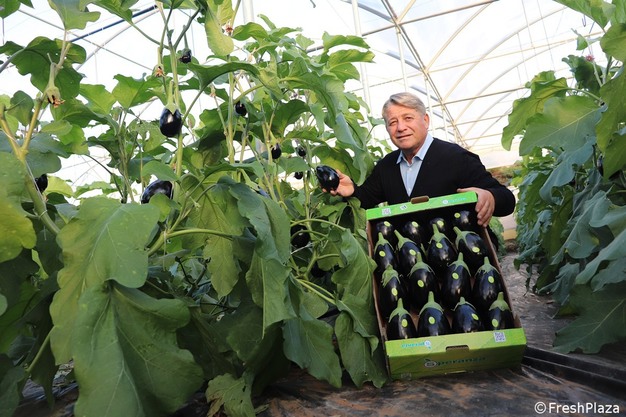 Above: Giuseppe Speranza, brother of Alessandro, the company's production manager. He is responsible for the fine-tuning in crop management that led, in synergy with external agronomists, to the production processes that characterise the company today.
Above: Giuseppe Speranza, brother of Alessandro, the company's production manager. He is responsible for the fine-tuning in crop management that led, in synergy with external agronomists, to the production processes that characterise the company today.
Click here to see the photo report
"Supermarket chains, especially foreign ones, appreciate us precisely for this versatility and for the simultaneous ability to maintain a highly sustainable and guaranteed healthy production. An aubergine that is 'Hormone free', 'Nickel tested' and with ultra-controlled pesticide residue thresholds still has a product value that goes beyond that of a standard product. For the sake of completeness, we would like to clarify that the Hormone Free protocol is being finalised for certification, while the Nickel Tested protocol is Agroqualità certified. We also have all the certifications required for international fruit and vegetable marketing."
For more information:
Speranza Srl 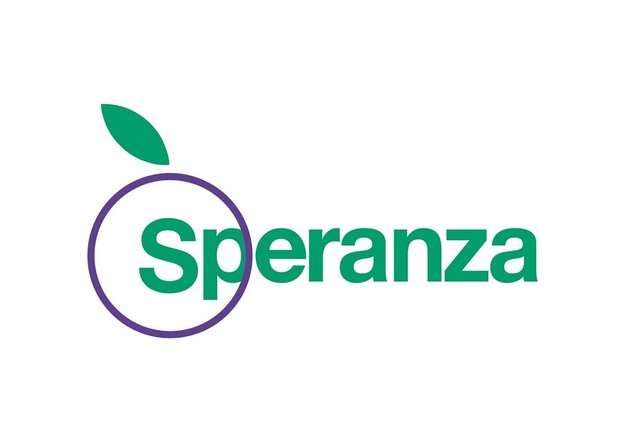
+ 39 333 119 7822
amministrazione.speranza@gmail.com
www.aziendasperanza.com
